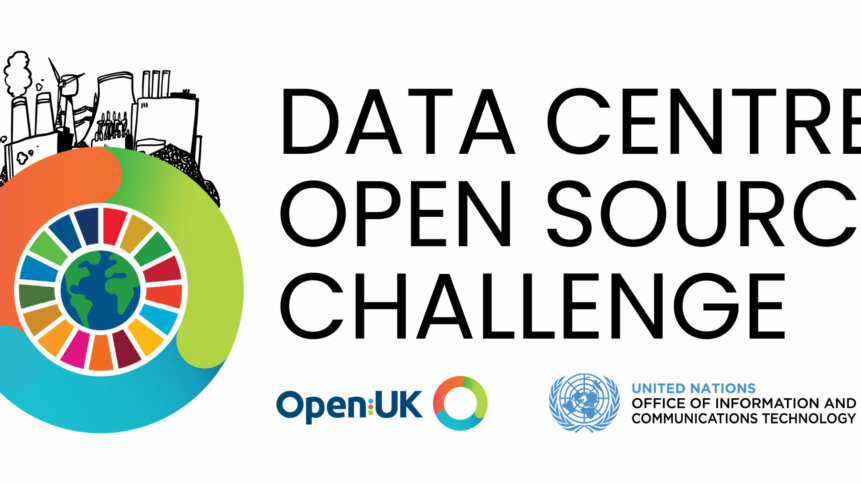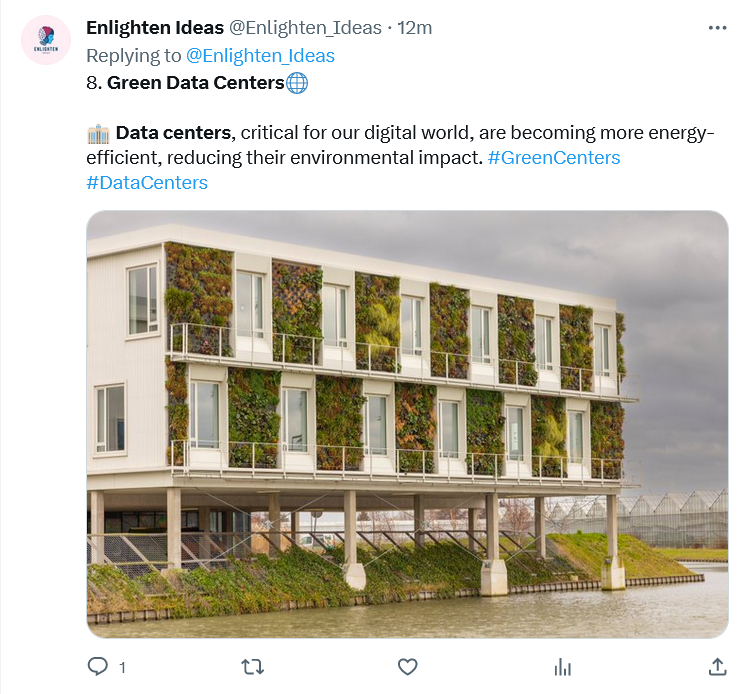
- Green data centers will be crucial in fight against climate disaster.
- OpenUK and the UN partner for Data Center Blueprint Challenge.
- There are several areas of the challenge to focus on.
Thanks to their huge power consumption, data centers currently produce 3% of global carbon emissions. We know, despite some politicians acting as though verifiable evidence and political expediency have the same evidenciary value, that decisive change is crucial to preventing (or at least mitigating) a growing climate disaster. And we also know that we’re not about to give up the enormous business benefits that can be brought by generative AI, and the data centers that make it possible. That’s where green data centers come in.
Although the AI race has needed vast data resources, the impact of data centers doesn’t have to cause the cataclysm that some believe AI will bring about.
Choosing green data centers
At the beginning of September, Deep Green announced a partnership with cloud native service provider, Civo.
Mark Bjornsgaard, Founder of Deep Green said, “Energy is expensive, and precious. So many organizations and communities struggle to afford the heat they need to exist. Yet so much energy, so much heat, is wasted everyday by data centers.

The Devon leisure center heated by data.
To combat the problem of data center emissions, Deep Green captures 90% of the heat produced by servers and puts it to good use – the provision of free hot water. That’s how it got onto our list of data centers in interesting places: tiny little data centers in swimming pools in the UK.
The partnership with Civo means that users of the service provider can select the Deep Green region from Civo’s range of regions. From there, they can run cloud workloads on Deep Green’s Exmouth system. As Deep Green continues to expand, Civo customers will be able to run their workloads at a range of Deep Green data center sites.
The move is another step that Civo is taking towards a sustainable future. It’s offering access at a competitive price and has kept that pricing consistent across all its regions as it encourages more of its customers to pivot to green solutions.

There are many paths to green data centers. How about we take them all before the world boils?
Designing green data centers
On October 9th, OpenUK announced it was partnering with the United Nations to launch the next edition of its Data Center Challenge, which will be named “Patchwork Kilt.”
Open UK is the organization for the business of Open Technology, that being Open Source Software, Open Source Hardware and Open Data, across the UK. Partnered with the United Nations’ Office of Information and Communications Technology, participants in the challenge will contribute open source solutions to help create a carbon-negative data centre model.

The name might put you in mind of the late Vivienne Westwood…
The blueprint for the data center of the future will be the development of a green data center using open technology. As Chris Lloyd-Jones, OpenUK’s chief blueprint officer (who’s leading the project) says, ““Achieving a sustainable future that benefits everyone is dependent on collaborative action.”
“Our collaboration creates a challenge as a way to open up this initiative to wider contributions and a broader community, allowing new technologies to be included. It’s a critical initiative that can have a tangible impact on the future of data centers.”
Participants will have the opportunity to make contributions through an array of different fields including:
- Heat redirection: develop an open source software solution to monitor and redirect heat produced in data centres.
- Building repurposing: participants will create an open source tool to better re-evaluate urban spaces, finding brownfield sites that can be re-used for data centres.
- Heat reuse: a statistical analysis of open datasets to identify areas to repurpose waste-heat
- Circular supply chain: build an open source software solution that manages the lifecycle of critical data centre components
- Blueprint evolution: analyze the data from Patchwork Kilt for insights into how to supercharge global sustainability efforts.
- Community empowerment: providing communities with actionable insights from data centres that can be used to build more sustainable cities.
All green heroes deserve capes
Of course, there’s the element of competition, too. The winner will get – as well as pride in helping to save the planet (which surely should come with a cape and a secret identity) – a trophy, presented at OpenUK’s awards ceremony. There will be a dinner at the House of Lords in November, and the winner will attend the black tie event, receiving recognition across the sector.
Salem Avan, director of policy, strategy and governance division at the UN, said: “Advances in computing power and artificial intelligence are generating major technological advances that have the potential to support progress in achieving the sustainable development goals.”
“In this context, open source is key, as it is a universal connector, uniting diverse voices through a common language.”
Contributions can be made to the challenges via the UN Unity Platform from October 1st with further information on the OpenUK website.











